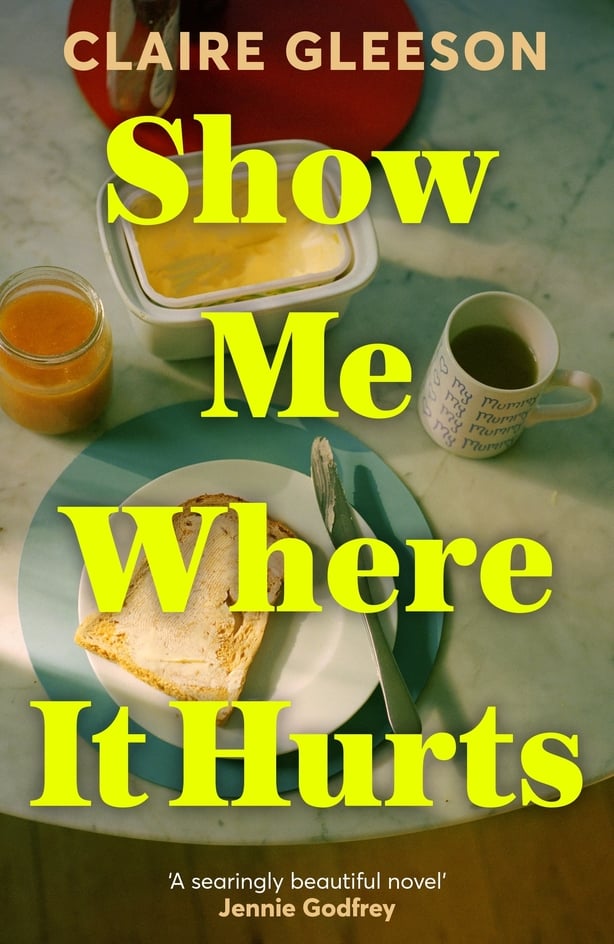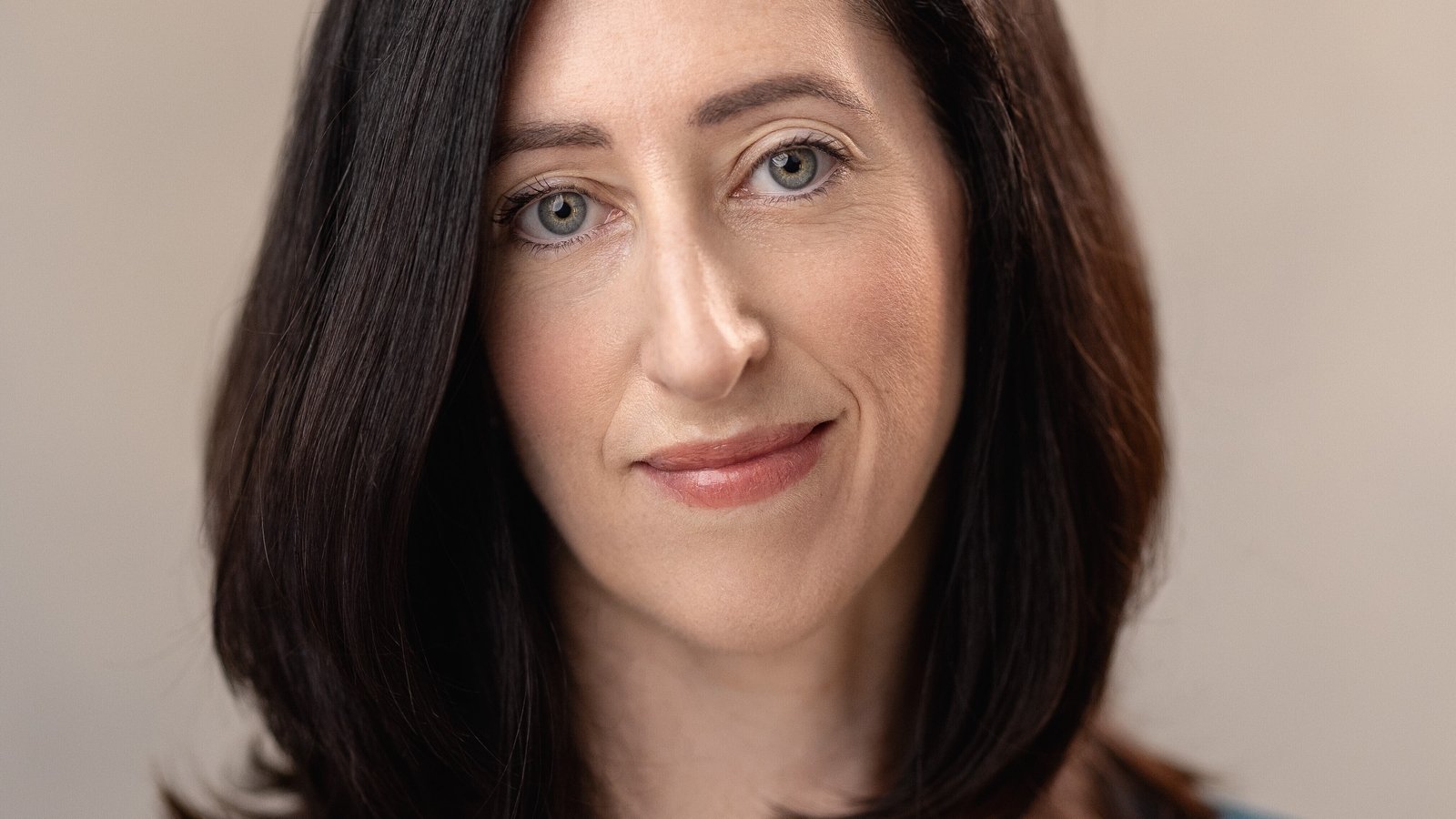We present an extract from Show Me Where It Hurts, the debut novel by Clare Gleeson.
Rachel lives with her husband Tom and their two children: it’s the ordinary family life she always thought she’d have. All of that changes in an instant – when Tom runs the family car off the road, seeking to end his own life, and take his wife and children with him. Rachel is left to pore over the wreckage to try and understand what happened – to find a way to go on living afterwards. What emerges is a snapshot of what it’s like to live alongside someone who is suffering, how you keep yourself afloat when the person you love is drowning, and how you survive irreparable loss.
She has waited until nine o’clock to go, and surely this is late enough, there will be nobody to see her. Only a madwoman would be out grocery shopping at this time of night, and on a Sunday too. Still, she sits for a long minute after she has parked, looking at all the other cars – too many of them, what on earth are they doing here at this hour? – and making sure that there is none she recognises. It has started to rain, and she is grateful for the excuse to pull up the hood of her raincoat before getting out of the car, and to scurry quickly across to the big doors. A hot blast of air greets her as she steps through them, and then she is inside, and she starts to breathe a little easier.
She has forgotten the bags, she realises straight away, and she has to stop herself from turning and darting back to the car. She steels herself. She needs to do this – she is out of milk, for a start, and she cannot keep calling her mother to rescue her every time the well runs dry. Besides, she thinks she will probably lose her mind entirely if she spends another day without setting foot out of the house. She takes a basket and pulls down her hood, sodden now, and pushes the wet strands of hair back from her face. Milk, and coffee, and sliced meat of some sort; that will be enough, for today. No need to push it.
Nothing in the familiar shop has changed, and yet she finds it difficult to orientate herself, and must read the signs swaying high above the shelves in order to work out where she needs to go. It is a bit further from the house, this supermarket, but she has been coming here regularly for six months now, ever since they stopped being able to go to the nearer place – ever since that nightmarish, unreal weekend when she had knelt in the cereal aisle beside a sobbing Tom while her children stared wide-eyed from the trolley. No, this place is not that one, although once inside they all feel the same really, the familiar brands and the piped music, and she has never again been able to fully relax in any of them.
At least it is not, in truth, very busy, despite all the cars outside, which she realises now are probably for the cinema next door. She gets the coffee pods, and a box of tea as well, and remembers then that she is almost out of bread, and goes to find that too. She passes the aisle with all the drink, and wonders whether to pick up a bottle of wine, but decides against it in the end. She has not had a drink since it happened; it feels like a road that might prove far too easy to go down.
In the mirrored end of a freezer cabinet she catches sight of a woman, pale and large-eyed and haggard, her posture hunched and wary, like an animal that has been hurt. It is with a lurch of her stomach that she recognises herself, and turns quickly away. She realises she has been avoiding mirrors for weeks.
It is while she is standing in front of the open fridges, trying to remember today’s date as she stares stupidly at the packets of ham, that she becomes aware of somebody at the edge of her vision. She ignores them at first until she realises, her mouth suddenly dry, that whoever it is has not moved in some moments. Only then does Rachel turn and face the woman, who is standing six feet away and raising one hand slowly to her cheek.
‘You’re that poor lady.’
Rachel is frozen, her heart a silent, thundering train that at any moment will come tearing out of her chest. The woman’s hand is still at her face, and she closes her eyes and shakes her head silently as if there are no words for what she wants to say. She is older than Rachel, though younger than her mother; fifty-five, maybe, or a good sixty, and the bottom few inches of her trousers are dark with rain.
‘I remember you from the news. Those poor little children.’
She blesses herself, her eyes closing for a fraction of a second.
Rachel finds that she is shaking, and she puts one hand on the edge of the fridge to steady herself. There is nobody else in sight. She wonders how long she is expected to stay here, an audience to this stranger’s vicarious flirt with grief.
‘Those poor, poor children.’ The woman is shaking her head again; she seems almost to be talking to herself. Everything she says is slow and heavy, as if laden with profundity.
Rachel clears her throat, looking to the shelves of cooked meat and sausages for inspiration. She is glad there is nobody else around; aside from anything else it is supremely embarrassing, this, and she finds herself angry that she has been drawn into it against her will.
The woman bends, finally, to pick up her basket from the floor. As she rises again – all her movements too are slow, as if she is affording them the appropriate gravitas – she nods to where Rachel’s hand is resting on the shelf.
‘You’re still wearing those. God almighty. I would have thrown them in his face.’
Rachel follows her gaze to see what she is talking about. She sees them then, as if for the first time – the slim platinum band with the two small diamonds; the slightly wider, unadorned one in its shadow. They are beautiful, her rings.
The woman leans over and pats Rachel’s arm in a way that is probably meant to be consoling.
‘I’d take them off, if I were you. Might give people the wrong idea, after everything.’
Rachel wonders what, exactly, the ‘wrong idea’ might be in this scenario. She is angry with herself, and with the woman, for the sudden shame that fills her now. She has never been somebody who sets much store by symbols, or ascribes meaning to objects beyond their practical or aesthetic use. Beautiful things she will keep, yes, but not the ones that are merely sentimental; after the obligatory day or two of admiration she used to, quite happily, direct all of her children’s artwork quietly to the recycling bin. The rings have never burdened her beyond their paltry weight in metal.
She had, quite simply, forgotten she was wearing them.
She opens her mouth, finally, to speak, although she has no sense of what words might be about to emerge. She feels dangerous, unleashed.
‘Excuse me.’ A man leans politely between them, tall and young and dark; thin white cords run from his ears to vanish into the depths of his duffel coat. He takes a packet of cooked chicken from the shelf and steps back again, his smile apologetic. Very slowly, as if she is afraid any sudden movement will precipitate some greater emotional crisis in this blight of a woman,
Rachel bends her knees and places her basket carefully on the floor. Then she turns around and walks quickly to the checkouts, and straight through them, and out the door.

Show Me Where It Hurts is published by Sceptre
